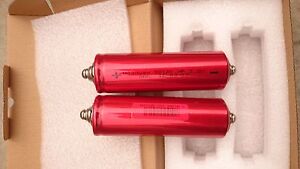In the past decade, electric cars have become increasingly popular as society looks for ways to reduce its reliance on fossil fuels. One key component of these vehicles is the battery, which powers the electric motor. There are a variety of battery types that can be used in electric cars, including lithium-ion, lead-acid, and nickel-metal hydride. However, one type of battery that is not typically used in electric cars is the lifepo battery. So, can electric cars use lifepo batteries? The answer is yes, but there are a few caveats. First, lifepo batteries are not as energy-dense as other types of batteries, so they would need to be larger in order to power an electric car. This would likely lead to a decrease in range for the vehicle. Additionally, lifepo batteries are not as well-suited to high-drain applications like electric cars, so they may not perform as well as other types of batteries in this application.
Dr. John Goodenough, an electrical engineer at the University of Texas, developed the LiFePO4 battery. They can provide full power until completely depleted, recharging in 2.5 hours. A123 Systems, working in collaboration with GM, is developing these batteries for the Chevrolet Volt plug-in hybrid. For their LiFePo4 batteries, Lithium Technology Corporation has collaborated with General Motors, Toyota, and U.S. Davis to develop hybrid and all-electric vehicles.
It is not possible to thermally runaway LiFePO4 cells in either charged or discharged state. The damage will be based on performance rather than safety, despite the fact that they will be damaged by an under voltage event.
Which Is Better Lifepo4 Vs Lithium Ion Battery?

There are a few key factors to consider when choosing between a lithium ion battery and a lifepo4 battery. Firstly, consider what you need the battery for. If you need a battery for a high-powered device that will be used frequently, then a lithium ion battery may be a better option. However, if you need a battery for a low-powered device that will only be used occasionally, then a lifepo4 battery may be a better option. Secondly, consider the cost of each type of battery. Lithium ion batteries are typically more expensive than lifepo4 batteries. Finally, consider the environmental impact of each type of battery. Lithium ion batteries can be more harmful to the environment than lifepo4 batteries.
LFP batteries have the potential to fundamentally alter the way energy storage works. The fact that they have a high energy density makes them a viable long-term storage solution for intermittent renewable energies such as solar and wind. Furthermore, due to their low self-discharge rate, they can be used multiple times without requiring additional battery power. Furthermore, LFP batteries’ low cost are driving their popularity. LiFEPO4 batteries are one of the least expensive types of batteries. As a result, they are appealing to applications with high energy density, such as hybrid and electric vehicles. There are several disadvantages to using LFP batteries. As a result, their life span is limited. LFP batteries, as opposed to lead-acid batteries or lithium-ion batteries, do not have a long life expectancy if not properly handled. The anode on a battery can become damaged over time, resulting in a lower performance level. Their weight is another issue. Because they are heavier than other types of batteries, LFP batteries are less desirable in applications with high mobility requirements. Furthermore, because of their high weight, they can be less efficient when used in hybrid or electric vehicles. Despite these limitations, LFP batteries are still useful in a wide range of applications. The advantages of these materials include a longer lifespan, increased energy density, and a lower cost, making them excellent choices for applications requiring high performance.
Can Lifepo4 Be Charge In Alternator?

It is possible to charge LiFePO4 batteries without modification on an alternator that is of good quality. Low-quality alternators with poor voltage regulation, on the other hand, can cause BMS to disconnect LiFePO4 batteries. The BMS may damage the alternator if it disconnects the batteries.
On the battery’s label, it was stated that it was a Plug and Play device. A good BMS will shut off a lithium battery when it is completely charged. When directly connecting a lithium battery house battery with a lead acid alternator, there are numerous issues. If you want to use a DC to DC charger, use a starter battery/alternator and a lithium house battery. Lifepo4 batteries are capable of drawing enough charge to cause harm to themselves, but it is more likely to harm your first alternator. BMS will not switch on until voltage reaches 3.65 volts per cell in most cases. The alternator will overheat if you idle it too much.
It is critical to have a charge controller in the middle. As a backup, I could remove the charging wire from the house battery and connect it to the 160 watt moveable solar panel on the camper roof, effectively isolating a new Lithium battery designed for home use. As a result, the alternator circuit would be removed from the starter battery and returned to its factory state. In a house, 50 amps are used for the batts, 50 amps are used for the vehicle, and 50 amps are used for the overhead lighting. The alternator circuit would be left as a factory part of the starter battery. If your battery isolation device or alternator catch fire, it’s a good bet they’ll catch fire. There is no better way to go than with a DC-DC charger.
Electric vehicle batteries are becoming more important as consumers shift to them due to their reliability and affordability. The LiFePO4 battery is an excellent choice due to its low cost, high capacity, and environmental friendliness. When it comes to charging LiPOFe4 batteries, it is critical to use a lithium iron phosphate battery charger. Most lead-acid battery chargers will suffice. The voltage limits of lithium iron phosphate batteries typically apply to AGM and GEL charge profiles. If the temperature is below 32 degrees Fahrenheit, you should never attempt to charge a LiFePO4 battery. Doing so can result in lithium plating, which lowers the capacity of the battery and can result in short circuits, which can be disastrous.
Can You Use Lifepo4 As Starter Battery?
Lifepo4 batteries can be used as starter batteries in some cases, but it is not recommended. These batteries are not as durable as other types of batteries, and they may not be able to provide the power needed to start a car. In addition, lifepo4 batteries may not be able to hold a charge as long as other types of batteries.
LiFePO4 batteries, also known as LFP4, as well as lithium ferrophosphate batteries are abbreviated as LiFePO4. LiPo batteries and LiIon batteries share some characteristics but have distinct characteristics. Maintaining proper operating conditions is essential for maintaining a low-temperature operation. To achieve a long cycle and calendar lifetime, proper care and feeding is required. There are several types of batteries, each of which is slightly larger and heavier than a Ford-Prefect battery, but each is roughly the size of a 4 cylinder battery. Is it OK to hold LiFePO4 battery at floating charge with voltage close to maximum battery voltage? Will it significantly reduce the battery life?
The abbreviation LiFP4 has an equivalent of one to several Ah. To rule out floating them or killing them early, you must say > one to several Ah. Some large battery manufacturers claim to be able to float their LFP4s. If you can’t be certain, don’t use them.
Because of the recent growth of electric vehicle (EV) ownership, the demand for lithium-ion (LiFePO4) batteries has risen. LiFePO4 batteries are ideal for use in UPS systems because they combine high energy density with long runtimes and consistent discharge voltage. This product’s chemistry is stable, non-toxic, and safe. There is no maintenance required for a long life (10+ years). LiFePO4 batteries, on the other hand, carry some risks. If they are not properly disconnected from the power source, they can potentially catch fire and cause a fire. It may also be difficult to replace damaged batteries because the damaged cells cannot be removed and replaced. It’s a good idea to disconnect the DIY LIFEPO4 pack before attempting to start the car. If you are using a commercial battery pack, you must blow up the last 400A fuse between the Main switch and the LIFEPO4 pack. Allowing the battery to overcharge will result in potential damage and overcharging.
Can I Just Replace Lead Acid Battery With Lithium?
Although lead acid batteries are well-known workhorses, lithium-ion batteries are high-performance energy storage solutions that can be easily substituted without compromising on performance or reliability – making them an excellent choice for replacing and upgrading worn-out lead acid batteries.